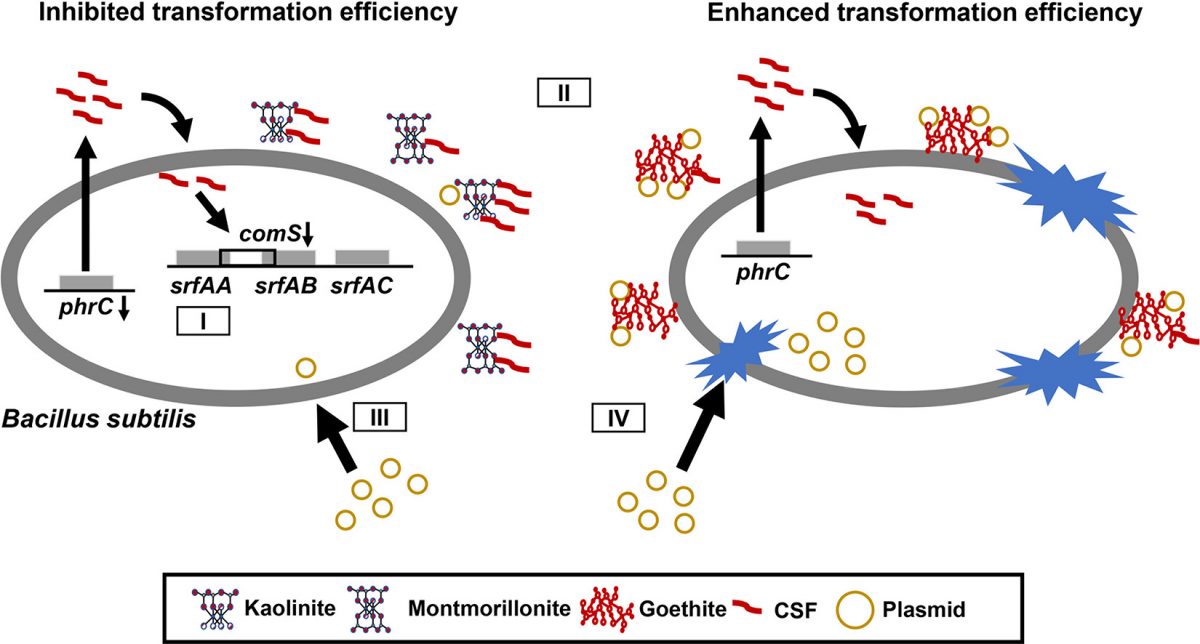Highlights
- •Kaolinite, montmorillonite, and goethite influence the transformation of B. subtilis.
- •Kaolinite and montmorillonite inhibit the transformation by strong adsorption of CSF.
- •Goethite damage bacterial membrane which yields high transformability of B. subtilis.
- •Mineral-cell adhesion depresses the expression of competent genes of B. subtilis.
Abstract
As one of the horizontal gene transfer processes, transformation provides bacteria flexible adaptation to changing environmental conditions. Soil minerals have been shown to inhibit bacterial transformation efficiency due to their high adsorption affinity for DNA molecules. However, the intrinsic mechanisms in regulating genetic transformation by soil components remain elusive. Little is known whether bacterial exposure to minerals may influence competence development which is regarded as a prerequisite of bacterial transformation. In this study, we examined the effects of kaolinite, montmorillonite, and goethite on the transformation of B. subtilis via chemical adsorption, Live-Dead staining, β-galactosidase assay, and qPCR. Results showed that kaolinite and montmorillonite reduced the transformability of B. subtilis by strong adsorption of CSF (competence-stimulating factor), a signaling molecule of cell competence, and the down-regulated transcriptional genes resulting from suppressed competence development. Conversely, goethite depressed bacterial transformation only at low mineral content by DNA adsorption. The striking membrane damage on B. subtilis in presence of high content of goethite yielded a marked increase of bacterial transformation. This finding subverted our previous view regarding the impact of soil minerals on bacterial transformation. Three mechanisms were thus proposed governing bacterial transformation in mineral systems: adsorption of CSF, gene expression and membrane damage. This work has advanced our understanding on the genetic transformation of bacteria as influenced by minerals in a wide range of soils and associated environments.
